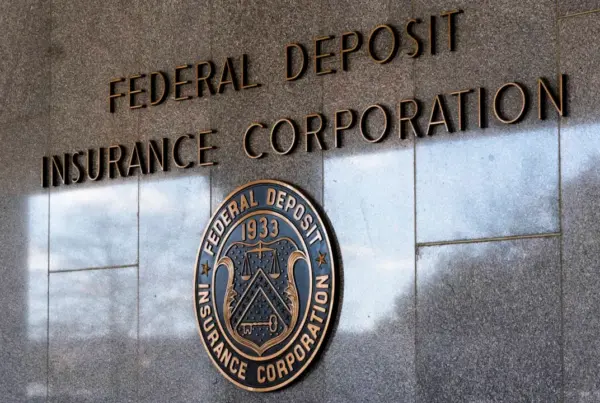Introduction
On August 23, 2024, the Federal Deposit Insurance Corporation (FDIC) proposed significant regulatory changes concerning brokered deposits, aimed at enhancing the stability of the banking system and protecting depositors. This proposal, which builds upon previous regulatory frameworks, seeks to redefine the parameters surrounding deposit brokers and their interactions with financial institutions. Historically, the FDIC has implemented various measures to address concerns related to the risks posed by brokered deposits, particularly in the wake of the 2008 financial crisis. The primary issue addressed by this regulatory action is the need for greater clarity and oversight in the brokered deposit market, which has evolved significantly with the rise of fintech companies and digital banking.
Key Regulatory Changes & Analysis
1. Expansion of the Definition of Deposit Broker
The proposed rule expands the definition of a deposit broker to include new categories of entities that facilitate the placement of deposits.
- New Definition: The FDIC now considers entities that solicit or place deposits on behalf of others as deposit brokers, regardless of whether they receive a fee.
- Comparison to Previous Rule: Previously, the definition primarily focused on those receiving compensation for their services. This change broadens the scope of regulatory oversight.
2. Enhanced Reporting Requirements
Under the proposed regulations, financial institutions will face increased reporting obligations concerning their brokered deposits.
- New Reporting Obligations: Institutions must report the total amount of brokered deposits and identify the sources of these deposits.
- Impact: This change is expected to enhance transparency and allow the FDIC to monitor risks associated with brokered deposits more effectively.
3. Restrictions on Brokered Deposits for Certain Institutions
The proposal introduces stricter limitations on the acceptance of brokered deposits for institutions that are less than well-capitalized.
- Capital Requirements: Banks that do not meet specific capital thresholds will face restrictions on the acceptance of brokered deposits.
- Rationale: This measure aims to mitigate the risks associated with reliance on volatile funding sources.
4. Clarification of Exemptions
The FDIC has clarified the exemptions applicable to certain deposit placements, particularly for community banks.
- Exemptions for Community Banks: Smaller institutions may continue to accept brokered deposits under certain conditions without being classified as deposit brokers.
- Significance: This clarification aims to support the operational flexibility of community banks while maintaining regulatory oversight.
Legal and Industry Implications
The proposed changes will impose significant compliance burdens on affected financial institutions, particularly smaller banks and fintech companies.
- Compliance Costs: Institutions may incur costs associated with system upgrades, staff training, and legal consultations to ensure adherence to the new requirements.
- Regulatory Risks: Non-compliance could result in enforcement actions, including fines and restrictions on deposit-taking activities.
Recent litigation surrounding brokered deposits highlights the potential for legal challenges against the FDIC’s authority to impose such regulations. Institutions should remain vigilant regarding administrative law considerations and potential judicial review of the final rule.
Recommended Actions & Compliance Strategies
Affected financial institutions should take proactive steps to ensure compliance with the proposed regulations:
- Review Internal Policies: Conduct a thorough review of existing policies relating to brokered deposits and update them to align with the new definitions and reporting requirements.
- Prepare for Reporting: Establish systems for accurate reporting of brokered deposits, including necessary data collection and analysis.
- Engage Legal Counsel: Consult with legal advisors to assess the implications of the proposed rule and prepare for potential compliance challenges.
- Public Comments: Institutions are encouraged to submit comments on the proposed rule during the public comment period to express concerns or suggest modifications.
Conclusion & Next Steps
The FDIC’s proposed rules on brokered deposits represent a significant shift in regulatory oversight, with far-reaching implications for financial institutions. The timeline for implementation remains contingent on the completion of the public comment period and subsequent finalization of the rule. Stakeholders should remain alert for additional regulatory developments and prepare for potential legal or legislative challenges that may arise in response to the new framework. As the financial landscape continues to evolve, institutions must adapt to ensure compliance and mitigate risks associated with brokered deposits.
By staying informed and proactive, financial institutions can navigate these regulatory changes effectively and maintain their competitive edge in the market.


